Jonathan Gadea Harder
Run Time Bounds for Integer-Valued OneMax Functions
Jul 21, 2023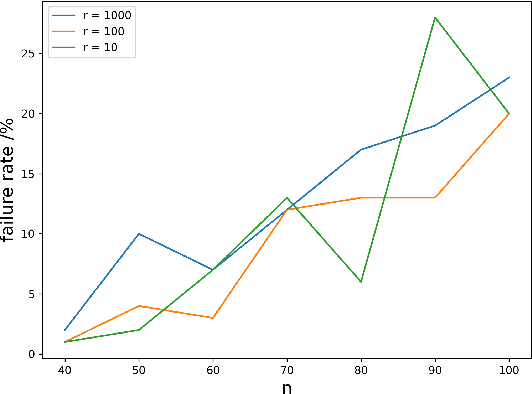
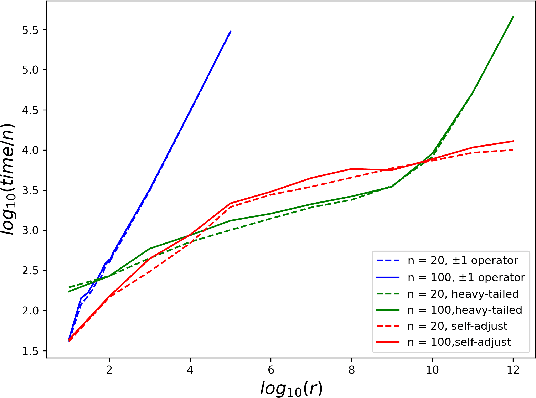
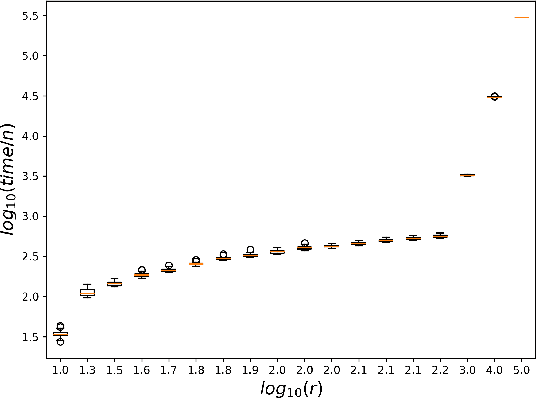
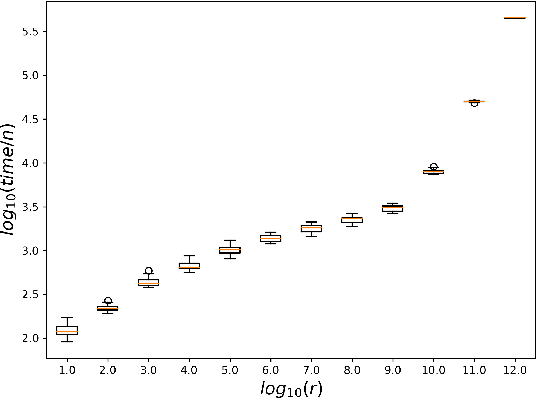
Abstract:While most theoretical run time analyses of discrete randomized search heuristics focused on finite search spaces, we consider the search space $\mathbb{Z}^n$. This is a further generalization of the search space of multi-valued decision variables $\{0,\ldots,r-1\}^n$. We consider as fitness functions the distance to the (unique) non-zero optimum $a$ (based on the $L_1$-metric) and the \ooea which mutates by applying a step-operator on each component that is determined to be varied. For changing by $\pm 1$, we show that the expected optimization time is $\Theta(n \cdot (|a|_{\infty} + \log(|a|_H)))$. In particular, the time is linear in the maximum value of the optimum $a$. Employing a different step operator which chooses a step size from a distribution so heavy-tailed that the expectation is infinite, we get an optimization time of $O(n \cdot \log^2 (|a|_1) \cdot \left(\log (\log (|a|_1))\right)^{1 + \epsilon})$. Furthermore, we show that RLS with step size adaptation achieves an optimization time of $\Theta(n \cdot \log(|a|_1))$. We conclude with an empirical analysis, comparing the above algorithms also with a variant of CMA-ES for discrete search spaces.
Strategic Resource Selection with Homophilic Agents
May 01, 2023
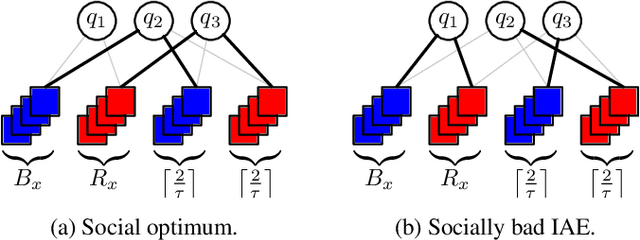
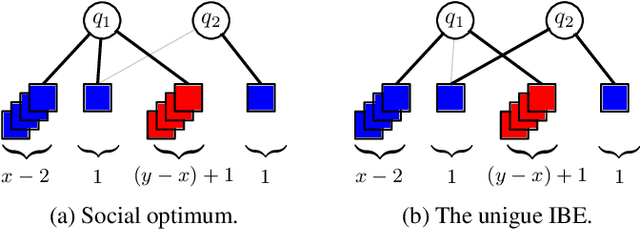
Abstract:The strategic selection of resources by selfish agents is a classic research direction, with Resource Selection Games and Congestion Games as prominent examples. In these games, agents select available resources and their utility then depends on the number of agents using the same resources. This implies that there is no distinction between the agents, i.e., they are anonymous. We depart from this very general setting by proposing Resource Selection Games with heterogeneous agents that strive for joint resource usage with similar agents. So, instead of the number of other users of a given resource, our model considers agents with different types and the decisive feature is the fraction of same-type agents among the users. More precisely, similarly to Schelling Games, there is a tolerance threshold $\tau \in [0,1]$ which specifies the agents' desired minimum fraction of same-type agents on a resource. Agents strive to select resources where at least a $\tau$-fraction of those resources' users have the same type as themselves. For $\tau=1$, our model generalizes Hedonic Diversity Games with a peak at $1$. For our general model, we consider the existence and quality of equilibria and the complexity of maximizing social welfare. Additionally, we consider a bounded rationality model, where agents can only estimate the utility of a resource, since they only know the fraction of same-type agents on a given resource, but not the exact numbers. Thus, they cannot know the impact a strategy change would have on a target resource. Interestingly, we show that this type of bounded rationality yields favorable game-theoretic properties and specific equilibria closely approximate equilibria of the full knowledge setting.
Maps for Learning Indexable Classes
Oct 15, 2020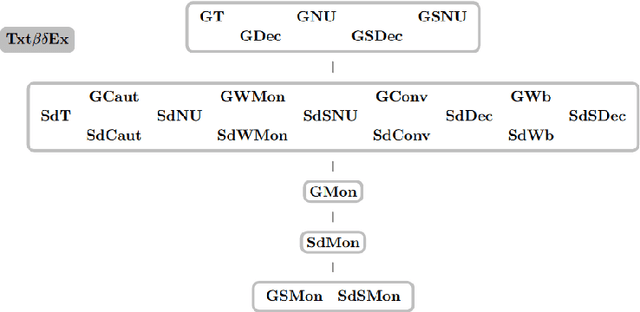
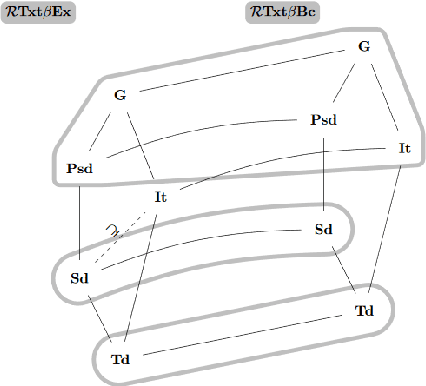
Abstract:We study learning of indexed families from positive data where a learner can freely choose a hypothesis space (with uniformly decidable membership) comprising at least the languages to be learned. This abstracts a very universal learning task which can be found in many areas, for example learning of (subsets of) regular languages or learning of natural languages. We are interested in various restrictions on learning, such as consistency, conservativeness or set-drivenness, exemplifying various natural learning restrictions. Building on previous results from the literature, we provide several maps (depictions of all pairwise relations) of various groups of learning criteria, including a map for monotonicity restrictions and similar criteria and a map for restrictions on data presentation. Furthermore, we consider, for various learning criteria, whether learners can be assumed consistent.
 Add to Chrome
Add to Chrome Add to Firefox
Add to Firefox Add to Edge
Add to Edge